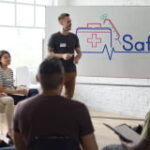-
Explore Course Categories
- Explore Course Categories
-
Engineering and Construction

91 Courses -
Personal Development

111 Courses
-
Explore Careers Categories
-
All Courses
-
Get Adams Premium (Remove Ads)
-
Adams Blog
-
Resume Builder
-
Adams For Business
-
Download the Adams App
-
Welcome Back!
- Don't have an Adams account? Sign Up
or -
Sign Up For Free
Join the World’s Largest Free Learning Community
- Already have an Adams account? Log In
orThis is the name that will appear on your Certification
-
Forgot password?
Please enter you email address and we will mail you a link to reset your password.
- Home
- Course
- Teaching and Academics
- Science
- Diploma in Water Chemistry
Diploma in Water Chemistry

This course includes:
-
4 hours, 26 minutes
-
CPD Accreditation
-
12 units
-
Full lifetime access
-
Access on mobile and TV
-
Certificate of completion

course plublisher
Course CloudLearning Outcomes
- Demonstrate a fundamental understanding of water chemistry principles and their practical applications.
- Apply basic chemistry concepts to the analysis of water composition and treatment processes.
- Evaluate the alkalinity of the water and its impact on the environment and human health.
- Analyse the properties of hard water and apply appropriate treatment methods to mitigate negative effects.
- Evaluate different water treatment and purification techniques, including their advantages and disadvantages.
- Evaluate the role of different inorganic and organic compounds in water treatment processes.
- Apply appropriate laboratory safety procedures and understand the importance of a chemical hygiene plan.
Course Overview
Water is one of the most precious resources on earth, and ensuring its quality is vital for human health and the environment. This diploma in Water Chemistry equips learners with a solid foundation in water chemistry principles and their practical applications. Learners will learn about the composition of water, various treatment and purification techniques, and the impact of different compounds on water quality.
The course covers various topics, from basic chemistry concepts to laboratory safety procedures. Learners will be exposed to the latest technologies and methods in water treatment and purification. Upon completion, graduates will be able to apply their knowledge to mitigate the negative effects of pollutants and ensure the availability of safe and clean water for all.
This course is ideal for anyone interested in environmental science, public health, or water resource management. It is also suitable for professionals seeking to expand their knowledge of water chemistry principles and techniques.
Course Benefits
The Diploma in Water Chemistry offers many benefits to learners. By the end of the program, learners will have a thorough understanding of water chemistry principles and their practical applications. They will be able to analyse water composition, evaluate treatment and purification techniques, and ensure the safety and quality of water.
The course equips individuals with valuable skills in high demand in many industries. Individuals can pursue careers in water treatment facilities, environmental consulting firms, public health agencies, and more. This course also provides an excellent foundation for further studies in environmental science, chemistry, or related fields.
Overall, the Diploma in Water Chemistry offers a comprehensive education in one of the most critical fields of study. Individuals will be well-prepared to tackle the challenges of ensuring the availability of safe and clean water for all.
Career Path
- Water Treatment Plant Operator – Operates and maintains water treatment equipment to ensure safe and efficient water treatment.
- Environmental Analyst – Conducts tests and analyses data to evaluate the impact of pollutants on the environment and human health.
- Water Quality Scientist – Researches to understand the chemistry of water and develops new treatment and purification techniques.
- Public Health Inspector – Inspects public facilities and ensures compliance with health and safety regulations, including water quality standards.
- Water Resource Manager – Oversees the management and conservation of water resources, ensuring water availability for all.
- Water Treatment Engineer – Designs and implements water treatment systems to ensure safe and efficient water treatment.
Course content
-
Module 01: Introduction to Water Chemistry
00:23:00 -
Module 02: Concepts of Basic Chemistry
00:22:00 -
Module 03: Alkalinity of Water
00:15:00 -
Module 04: Hard Water and Basic Water Treatment Principles
00:20:00 -
Module 05: Water Treatment and Purification
00:31:00 -
Module 06: Chemical Processes of Water Treatment
00:16:00 -
Module 07: Inorganic Chemicals
00:17:00 -
Module 08: Volatile and Synthetic Organic Compounds
00:25:00 -
Module 09: Metalloid Section
00:18:00 -
Module 10: Metals and Heavy Metal Section
00:33:00 -
Module 11: Laboratory Safety
00:33:00 -
Module 12: Chemical Hygiene Plan
00:13:00

Certify Your Skills
A CPD accredited Adams Diploma/Certificate certifies the skills you’ve learned.

Stand Out From The Crowd
Add your Adams Certification to your resume and stay ahead of the competition.

Advance in Your Career
Share your Adams Certification with potential employers to show off your skills and capabilities.

About Course Publisher

 Courses
Courses
Unlock your potential with Course Cloud, the UK's leading online provider of career-enhancing skills. With everything from IT and business to healthcare and skilled trades, our diverse range of courses are researched diligently and accredit-rated. Enjoy interactive, self-paced learning through diverse formats that include instructor-led sessions, multimedia lessons and expansive study material. You could be the next to power your career with us. Don't miss out on the opportunity of learning anything at any place with unprecedented flexibility through courseware available on any device. With dedicated tutor support, Course Cloud assures a learning journey that is not just informative but transformative. Join us in taking the first step towards achieving your career aspirations. Request the information today in English (UK) language.
More Free Online Courses by This Publisher

Certificate
Sustainable Living
 7
Lessons
7
Lessons
 79
Students
79
Students

Certificate
Teaching Students with Learning Disabilities
 8
Lessons
8
Lessons
 37
Students
37
Students

Certificate
Parenting Skills Training Course
 16
Lessons
16
Lessons
 22
Students
22
Students

Certificate
Functional Skills Maths Level 2
 66
Lessons
66
Lessons
 46
Students
46
Students

Certificate
Home Based Childcare Course - Level 3
 9
Lessons
9
Lessons
 22
Students
22
Students



























 Diploma in Water Chemistry
Diploma in Water Chemistry